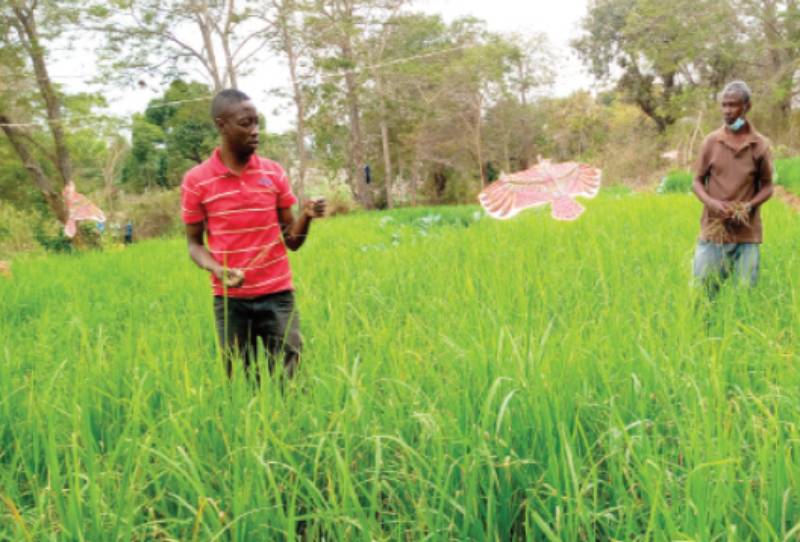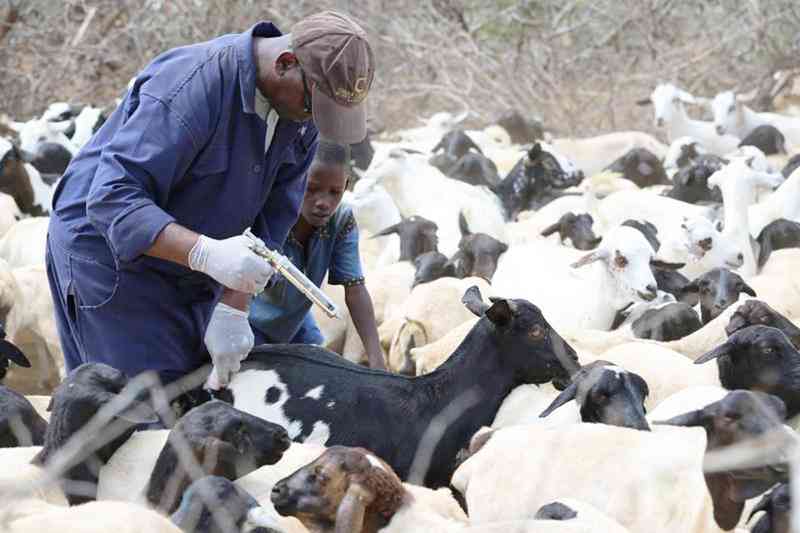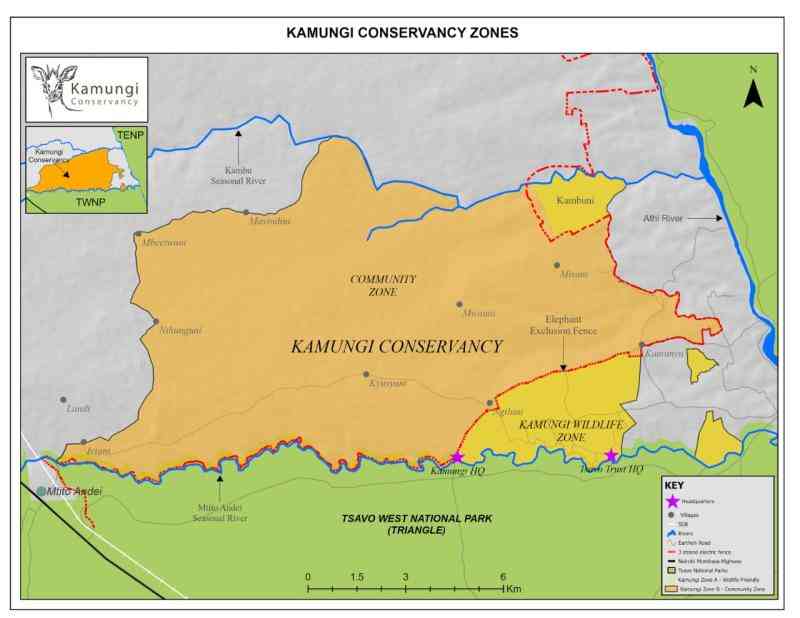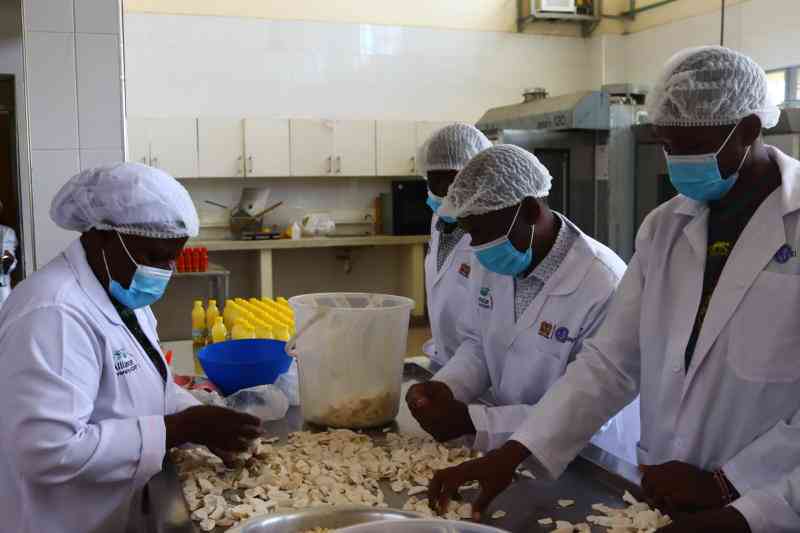
As you step into a small farm at Kunguluni village on the outskirts of Kitui town, a lush field of Pishori rice makes it difficult to believe it is in a semi-arid area.
Here, Richard Musyoka, a local farmer, with the technical assistance of a water engineer, has gone against the grain and plunged into rice farming on slightly over one-acre land.
To the amusement of his neighbours who keep flocking his farm to get a glimpse of the wonder cereal crop in a dry county, Musyoka’s venture seems to have succeeded. In about a month, he will be having his first harvest.
The lush vegetative cover lying side by side in designated plots has defied the semi-arid climate of the area where rice farming would instantly be dismissed as a joke.
In his pilot project, Musyoka with the technical assistance from Martin Kasina, started with two varieties of rice – an uplands variety known as Nerica and Basmati 370 commonly known as Pishori.
At 100 days after sowing, the crop is doing well.
Kasina’s 10 years of experience as a senior researcher with National Irrigation Board (now National Irrigation Authority) based at the Mwea Irrigation Scheme has played a pivotal role towards the success of the project.
The farmer says at first, he was hesitant to venture into rice farming but the encouragement from the expert pushed him to give it a shot. He soon realised it was not as difficult as he thought.
“My assumption was that rice needed to be grown in a flooded area. However, I found out that with good source of water, one can irrigate the crop and get good results,” Musyoka says.
He says that in the past, he used to grow vegetables most of which would go to waste when the supply in the market exceeded the demand. This informed his decision to diversify to a more high value cereal crop and together with the expert, they decided on rice. The high demand for pure Pishori rice also played a key part in their decision.
Kasina, who has wide experience in rice farmlands, says in some places Pishori rice is blended with other varieties such as Pakistani and Sindano and passed off to the market as pure.
“Our plan is to produce our own pure Pishori and take advantage of the high demand in the market,” says the farmer.
His source of water is a shallow well dug along River Nzeeu from where it is supplied using a motorised water pump to the farm which is divided into sizable plots. The plots are flooded with water after every three days.
Kasina says after years of research in Mwea rice farms, and with new technologies borrowed from Japan and Thailand, research has shown that rice can also be successfully grown with reduced amounts of water.
This is the knowledge he wanted to bring home and encourage local farmers to diversify from traditional cereal crops such as maize to high value cereals such as rice. However, unlike in Mwea where farm machinery would prepare the farms, Musyoka engages manual labour.
Fertiliser is needed
The rice was first planted in a nursery bed and then transplanted to the plots at 21 days.
Kasina says in formative stages, DAP fertiliser is needed to allow for vegetative growth, adding that at day 21, folier feed which is rich in nitrogen is applied.
At day 70 when it starts flowering, Sulphate Ammonia is applied to boost formation of seeds (now the rice). Weeding is done manually by plucking the weeds after wetting the plots.
Scare scrows have also been erected to ward off quelea birds which have huge appetite for Pishori grain.
However, rice farming being a new venture in Kitui County, the farmer says key chemicals and even fertilisers are not locally available and have to be sourced from as far as Embu town.
Kasina notes that soils in Kitui County are fertile and with the use of seasonal rivers, rice farming can be the next commercial frontier for local farmers.
Musyoka and Kasina say that with the encouragement from other local farmers who have shown willingness to venture into commercial rice farming, their future plan is to upscale and add more acreage under rice.
“Part of our future plans is to invest in a mill so as to be able to produce and package the white rice, thus giving local farmers all the benefits,” says the expert.
“Getting a local production of rice variety will be the ultimate pride of our county,” says Musyoka.
At first, the neighbouring community was skeptical about the venture but after seeing its progress, some now plan to go into rice farming.
Benjamin Ngatho, the patron of Itambya Self Help Group that has taken keen interest in rice farming, is convinced that it is a viable venture.
“Our plan is to put up a sand dam and raise water volume for commercial rice farming. It is working and we have embraced it,” says Ngatho.
Want to get latest farming tips and videos?
Join Us
 The Standard Group Plc is a multi-media organization
with investments in media platforms spanning newspaper print operations,
television, radio broadcasting, digital and online services. The Standard Group
is recognized as a leading multi-media house in Kenya with a key influence in
matters of national and international interest.
The Standard Group Plc is a multi-media organization
with investments in media platforms spanning newspaper print operations,
television, radio broadcasting, digital and online services. The Standard Group
is recognized as a leading multi-media house in Kenya with a key influence in
matters of national and international interest.
 The Standard Group Plc is a multi-media organization
with investments in media platforms spanning newspaper print operations,
television, radio broadcasting, digital and online services. The Standard Group
is recognized as a leading multi-media house in Kenya with a key influence in
matters of national and international interest.
The Standard Group Plc is a multi-media organization
with investments in media platforms spanning newspaper print operations,
television, radio broadcasting, digital and online services. The Standard Group
is recognized as a leading multi-media house in Kenya with a key influence in
matters of national and international interest.







